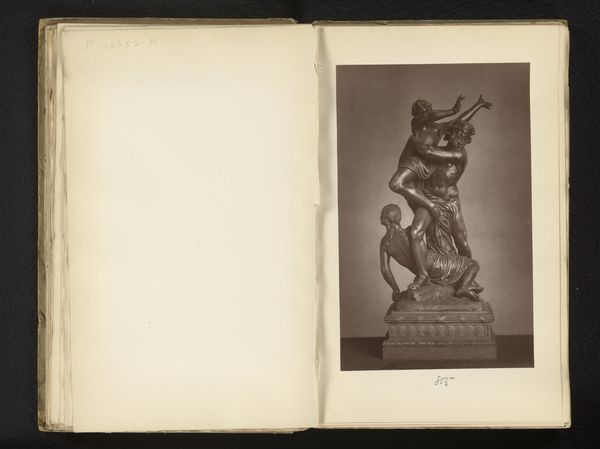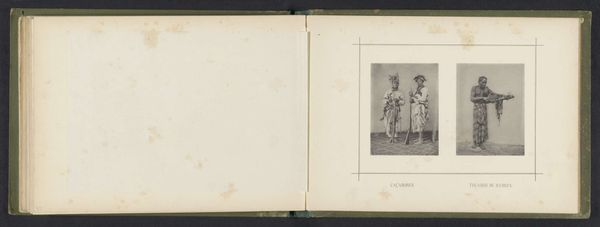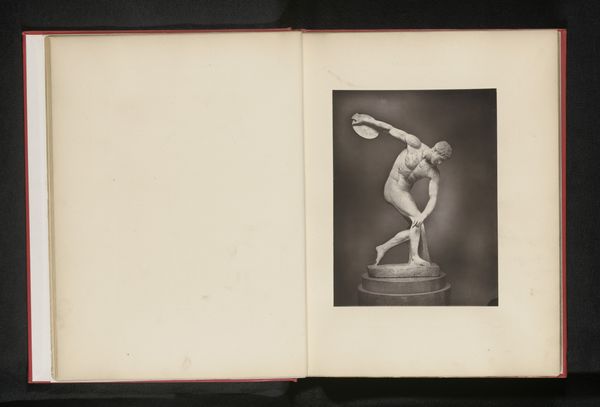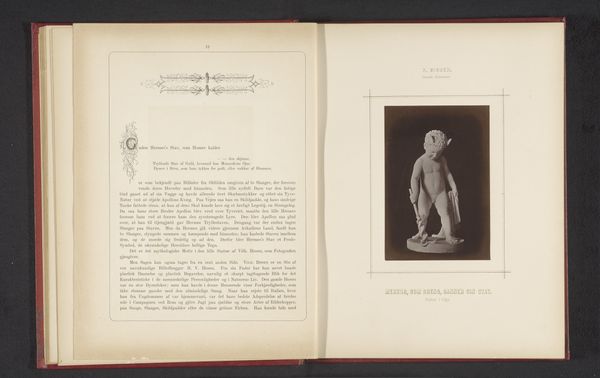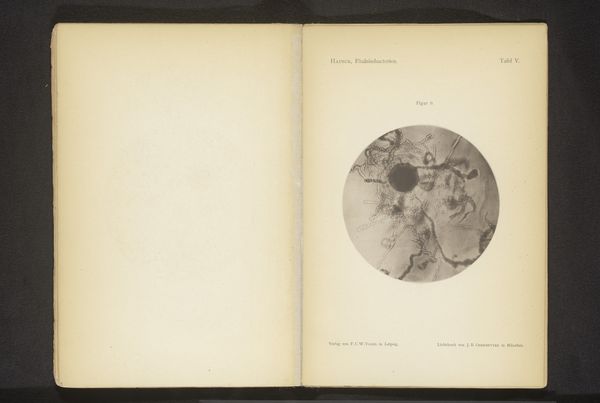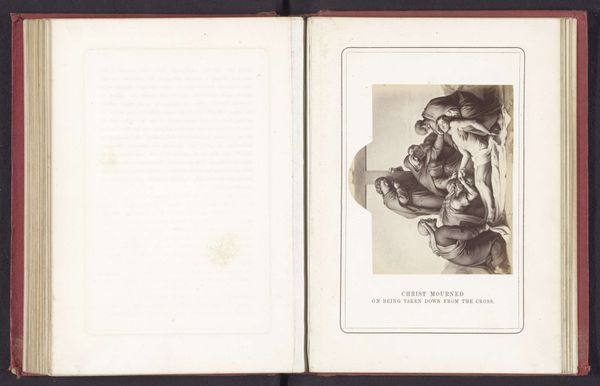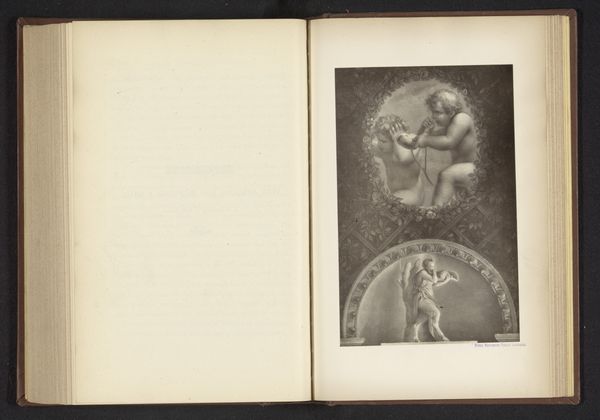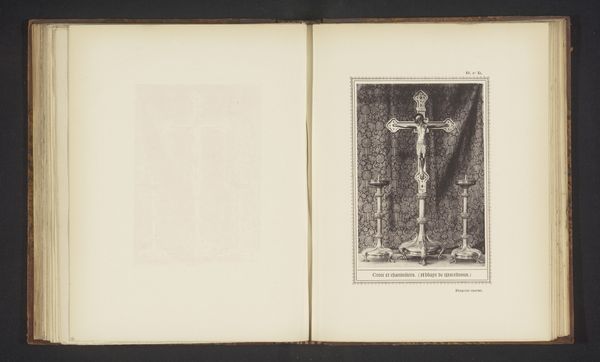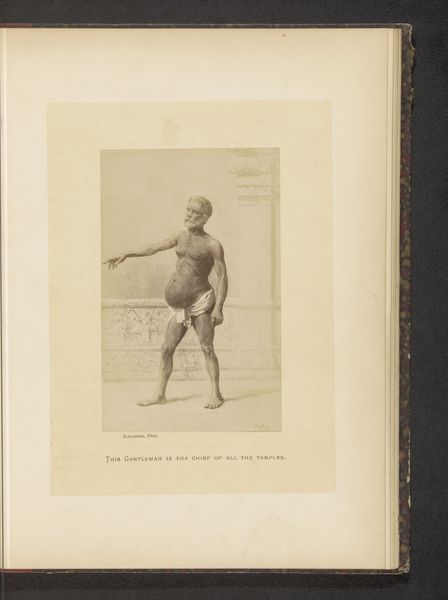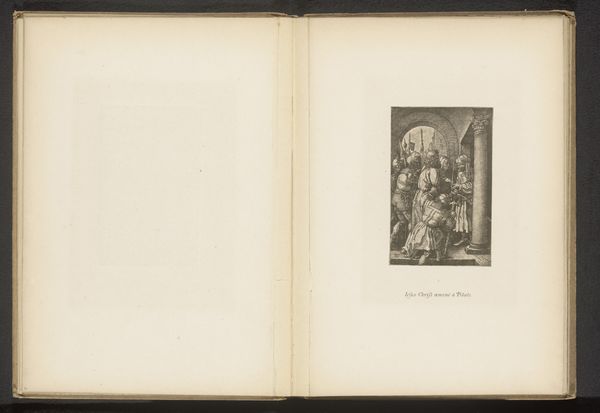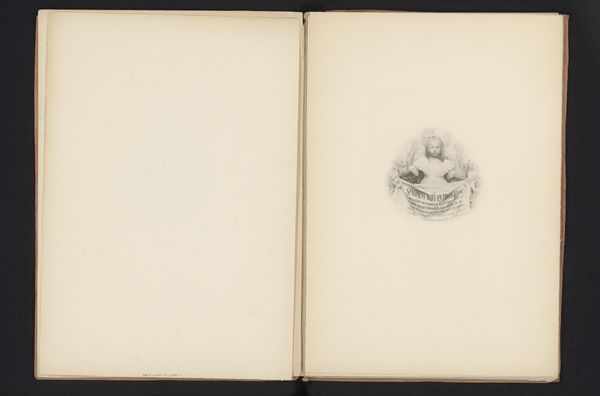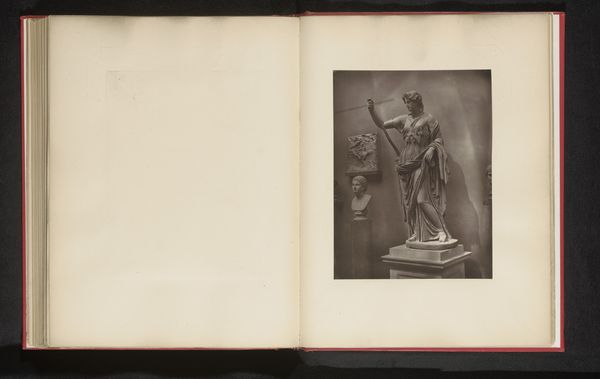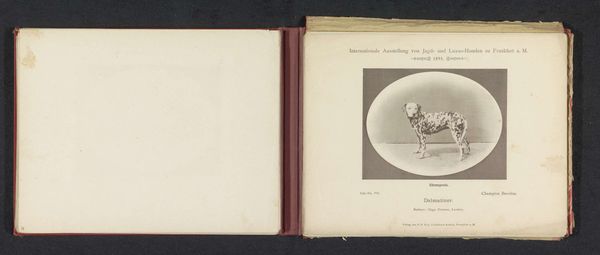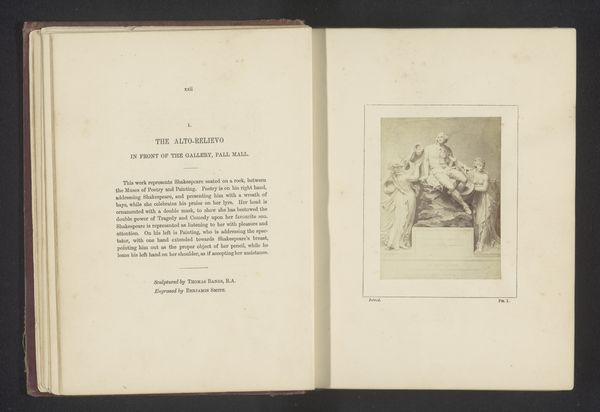
Zilveren Atlas-beeldje door een van de gebroeders Van Vianen 1876
0:00
0:00
Dimensions: height 167 mm, width 125 mm
Copyright: Rijks Museum: Open Domain
Editor: This image presents "Zilveren Atlas-beeldje door een van de gebroeders Van Vianen," a bronze sculpture dating back to 1876, residing here at the Rijksmuseum. Atlas looks as though he is really laboring under that globe's weight, with incredible musculature on display, and standing atop an almost chaotic, craggy base. What strikes you when you look at it? Curator: Well, seeing Atlas, the titan condemned to hold up the heavens, instantly brings to mind the weight of history and power. Think about 1876 – this sculpture is produced during a period of intense colonial expansion and the construction of national identities. Does seeing Atlas bearing a globe make you think of how artistic representations reinforce ideologies? Editor: I suppose so. I hadn't considered colonialism. Is it meant to symbolize a burden of power? Curator: Precisely. Consider also how museums themselves play into this. Museums present and preserve cultural artifacts, influencing how we perceive other cultures, including power dynamics. Does the very act of placing Atlas in a museum setting alter his meaning, from burdened figure to perhaps a symbol of collected, conquered knowledge? Editor: It really shifts my perception, thinking about where it is displayed. Suddenly, I'm not so sure about it being merely an objective representation of mythology. Curator: Exactly. Think about the implications when viewing art—everything from the subject to its environment, shapes its narrative, particularly surrounding political undertones. Are you finding this gives you an altered lens? Editor: I definitely am! I will ponder more of that as I make my own art. Thanks. Curator: My pleasure, seeing how cultural contexts always play a role.
Comments
No comments
Be the first to comment and join the conversation on the ultimate creative platform.
